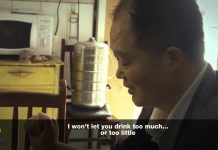In the wake of Cambodia’s tumultuous civil war from the 1970s to the 1990s, the country has witnessed a remarkable increase in tourism, attracting over two million visitors annually. Many tourists are driven by noble intentions to assist this war-torn nation and contribute as volunteers. With a genuine desire to make a positive impact, they often seek to fill the void created by insufficient development funding in areas such as schools and orphanages. However, this surge in well-meaning volunteers has unwittingly fueled an alarming rise in residential care homes, leading to an unintended consequence: the separation of children from their families in exchange for promises of Western-style upbringing and education.
Despite a period of economic prosperity, Cambodia has experienced a troubling trend. The number of children residing in orphanages has more than doubled in the past decade, raising concerns about the true circumstances behind their orphaned status. Shockingly, it has been revealed that over 70 percent of the estimated 10,000 “orphans” in the country still have at least one living parent. Even more disconcerting are reports that some companies organizing volunteer programs or operating orphanages are exploiting Cambodian children for their own gains.
In this thought-provoking article, we delve into the heart of Cambodia’s orphan crisis, shedding light on the dark underbelly of volunteer tourism. We examine how the influx of well-intentioned volunteers inadvertently contributes to the proliferation of residential care homes, often fueled by impoverished parents succumbing to promises of a better future for their children. This exploitation of vulnerable families highlights the complex dynamics at play within Cambodia’s post-war society.
By uncovering the disconcerting realities of Cambodia’s orphan crisis, we aim to raise awareness and provoke critical reflection on the consequences of our actions when engaging in volunteer tourism. The article investigates the ethical implications of well-meaning intentions clashing with systemic issues, resulting in unintended harm. It urges readers to consider alternative approaches to supporting Cambodia’s development, focusing on sustainable solutions that empower families and communities rather than perpetuating a cycle of separation and exploitation.
As we shine a light on the shadows cast by the orphanage industry, we strive to ignite meaningful discussions and inspire change. Through a deeper understanding of the complexities faced by Cambodian families and the unintended consequences of our actions, we can collectively work towards a more responsible and compassionate approach to supporting vulnerable communities.

































